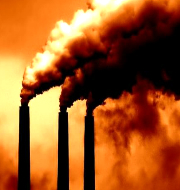UK’s Colonial History Doubles Its Historical Emissions in Global Heating
Recent analysis reveals that the United Kingdom is responsible for nearly twice as much global heating as previously estimated when accounting for its colonial history. While the UK’s domestic emissions contribute to 3% of total world emissions dating back to 1850, the figure rises to over 5% when emissions from countries once under British empire rule are attributed to the UK. The additional emissions primarily result from deforestation in the colonized nations, with India, Myanmar, and Nigeria being major contributors before their independence.
Shift in Rankings
This analysis by Carbon Brief alters the UK’s position from eighth to fourth in the list of nations with the most substantial historical emissions, placing it behind the US, China, and Russia. The implications of historical emissions are significant, as there is a direct link between the amount of carbon dioxide released over time and the current level of heating at the Earth’s surface.
Climate Justice Debate
The issue of responsibility is central to international climate negotiations, with ongoing discussions on climate finance to support developing nations. The upcoming Cop28 summit will see debates on a crucial “loss and damage” fund. The UK’s historical colonial emissions highlight the broader challenge of addressing climate justice and reparations.
Global Impact
The impact of climate change is disproportionately affecting poorer nations with low emissions, despite the primary contributors being rich nations. The analysis underscores the role of developed countries, particularly former colonial powers, in current warming and emphasizes their responsibility to support climate responses in less developed nations.
Colonial Emissions of Other Nations
The Netherlands and France also experience a shift in historical responsibility rankings when colonial emissions are considered. The Netherlands, which colonized Indonesia, rises from 35th to 12th in the ranking. France’s total emissions increase by 50%.
Per Capita Historical Emissions
The analysis also calculates per capita historical emissions from 1850 based on today’s population. The Netherlands tops the list in per capita historical emissions, followed by the UK.
Global Impact of Colonial Rule
The analysis brings attention to the devastating losses and damages experienced in former British colonial territories. However, there are concerns that the proposed setup of the loss and damage fund may not adequately hold former colonizers accountable for their historical responsibility.
Response and Action
Climate activists and organizations argue that the UK must align its actions with its historic responsibility, especially as it currently ranks as the fourth-highest historic carbon emitter. Critics point to concerns such as new oil and gas licenses and controversies around the delivery of promised climate finance.
Government Response
The UK government emphasizes its decisive actions to cut emissions faster than other major economies, accounting for 1% of annual global emissions. It underscores investments to support the transition to net-zero and reduce emissions further.
Methodology
Carbon Brief’s analysis uses published historical emissions data from 1850 to 2021, incorporating data updates to 2023. The study accounts for 46 countries that were once part of the British empire, attributing emissions from former Soviet republics to Russia.
Month: Current Affairs - November, 2023
Category: Environment Current Affairs • International / World Current Affairs







